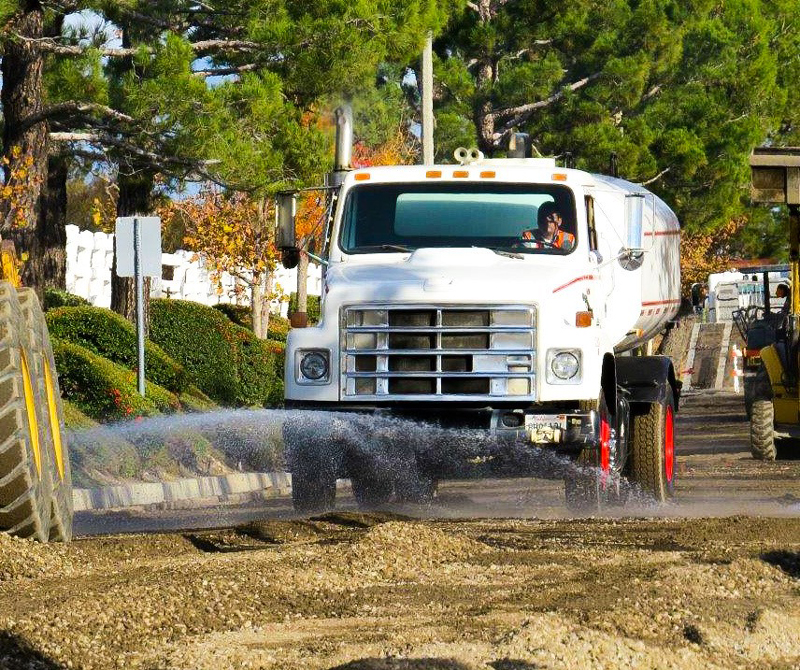
What is it?
A water truck, also known as a tank truck or tanker truck, is a vehicle designed to carry liquids from one location to another. These trucks are comprised of 3 components: the cab for the driver, the tank for the water, and pumping equipment for dispersing the water where it is needed. In general, water trucks serve 4 main purposes: dust control, soil compaction, firefighting, and farming. At AMS Paving, we use our water trucks for dust control and the first steps of soil compaction.
How does it work?
Our water trucks start their journey at our equipment yard where they are filled on site through our specialized meter and hold up to 2,500 gallons of water per truck. From there, they’re loaded onto a move trailer and transported to the job site to spray down the soil as needed for dust control or compaction. Using controls inside the cab of the truck, the water is pumped from the tank through sprayers on the front, rear, and sides of the truck.
For dust control purposes, our drivers spray water over areas of dirt to keep dust from rising up and becoming unmanageable. If not suppressed, the dust may pose a threat to anyone near the job site as it can obstruct visibility (which is never good when dealing with large, loud, heavy machines) and cause health hazards after repeated exposure, such as eye and lung irritation, asthma, or bronchitis.
When used to assist with compaction, water truck operation needs a skilled hand. Too much water will make the soil sludgy, unstable, and difficult to use as an asphalt base; too little water will leave the soil particles too dry to adhere to each other and leave a loose and uneven surface. The right amount of water applied to the soil substrate will allow it to stick together enough to withstand the compaction from our heavy rollers and create a smooth surface on which to apply asphalt.
